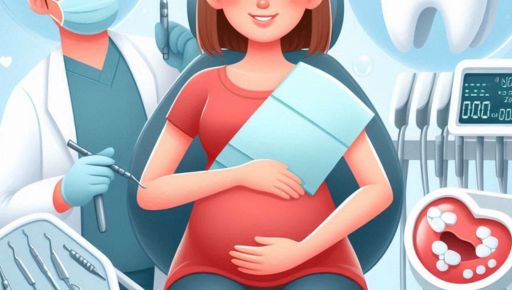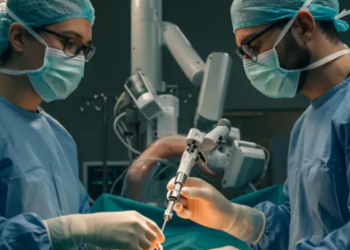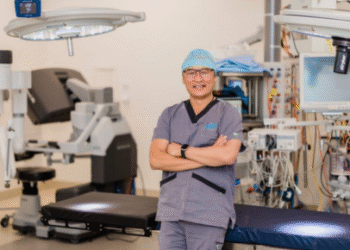
Expectant mothers face unique dental challenges during pregnancy. Hormonal fluctuations, increased blood volume, and morning sickness can lead to dental emergencies, compromising oral health and potentially affecting the developing fetus. In such situations, prompt attention from a qualified San Jose CA dentist is crucial. Emergency dentistry during pregnancy requires specialized care, balancing the need for urgent treatment with the safety and well-being of both mother and baby.
This article explores the importance of emergency dentistry during pregnancy, highlighting the risks, prevention strategies, and safe treatment options available from experienced dentists.
Dental Emergencies During Pregnancy
Pregnancy can increase the risk of dental emergencies due to hormonal changes, increased blood volume, and other factors. Prompt attention from a qualified dentist is crucial to prevent complications.
Common Dental Emergencies During Pregnancy
- Toothache: Severe pain, swelling, or sensitivity.
- Gum Inflammation: Bleeding, swelling, or pain in the gums.
- Tooth Decay: Cavity or infection requiring immediate attention.
- Lost Filling or Crown: Restoring damaged or lost dental work.
- Dental Trauma: Injury to teeth, gums, or surrounding tissue.
- Abscess: Infected pocket of pus requiring drainage.
- Loose or Broken Tooth: Trauma or decay-causing tooth instability.
- Gum Abscess: Infected gum pocket requiring treatment.
- Dental Infection: Bacterial infection spreading to surrounding tissue.
- Wisdom Tooth Issues: Impacted or infected wisdom teeth.
Symptoms Requiring Immediate Attention
- Severe toothache or pain
- Swelling or bleeding
- Difficulty swallowing
- Fever or chills
- Trauma to teeth or mouth
Safe Dental Procedures During Pregnancy
During pregnancy, maintaining good oral health is crucial for both mother and baby. While some dental procedures are safe, others should be postponed until after delivery. Here’s a comprehensive guide to safe dental procedures during pregnancy.
Safe Dental Procedures
- Routine Cleanings: Regular cleanings prevent gum disease and tooth decay.
- Fillings: Tooth-colored fillings repair cavities and prevent further decay.
- Crowns: Protect damaged teeth from further harm.
- Extractions: Necessary for removing infected or damaged teeth.
- X-rays: Taken with proper shielding to minimize radiation exposure.
- Local Anesthesia: Safe for pain management during procedures.
- Topical Anesthetics: Effective for minor procedures.
Procedures to Postpone
- Elective Procedures: Cosmetic procedures, such as teeth whitening or veneers.
- Major Surgical Procedures: Procedures requiring general anesthesia or extensive recovery.
- Dental Implants: Postpone until after pregnancy and breastfeeding.
Pregnancy-Specific Considerations
- First Trimester: Avoid non-emergency procedures due to fetal development.
- Second Trimester: Schedule routine cleanings and necessary procedures.
- Third Trimester: Limit procedures to emergencies only.
Dental X-ray Safety Protocol During Pregnancy
Dental X-rays are essential for diagnosing and treating dental issues, but pregnancy requires special precautions. Here’s a comprehensive guide to dental X-ray safety protocol during pregnancy:
Precautions Before X-rays
- Inform your dentist about your pregnancy.
- Discuss medical history and pregnancy status.
- Ensure lead apron and thyroid collar usage.
X-ray Safety Measures
- Lead Apron: Covers abdomen and pelvis.
- Thyroid Collar: Protects thyroid gland.
- Digital X-rays: Lower radiation exposure.
- Fast Film or Digital Sensors: Minimize exposure time.
X-ray Types and Safety
- Intraoral X-rays: Safe during pregnancy.
- Panoramic X-rays: Use with caution.
- CBCT (Cone Beam Computed Tomography) Scans: Avoid unless essential.
Pregnancy Trimester Guidelines
- First Trimester: Avoid X-rays unless emergency.
- Second Trimester: Use X-rays only when necessary.
- Third Trimester: Limit X-rays to emergencies.
Final Words
Maintaining good oral health is crucial during pregnancy, and emergency dentistry plays a vital role in ensuring the well-being of both mother and baby. By understanding the risks and prevention strategies, expectant mothers can take proactive steps to mitigate dental emergencies. It’s essential to find a qualified and pregnancy-experienced dentist who can provide safe and effective treatment. With proper care and attention, pregnant women can manage dental emergencies, prevent complications, and enjoy a healthy, beautiful smile throughout their pregnancy. Remember, a healthy smile is just the beginning – it’s a reflection of overall health and well-being.










